
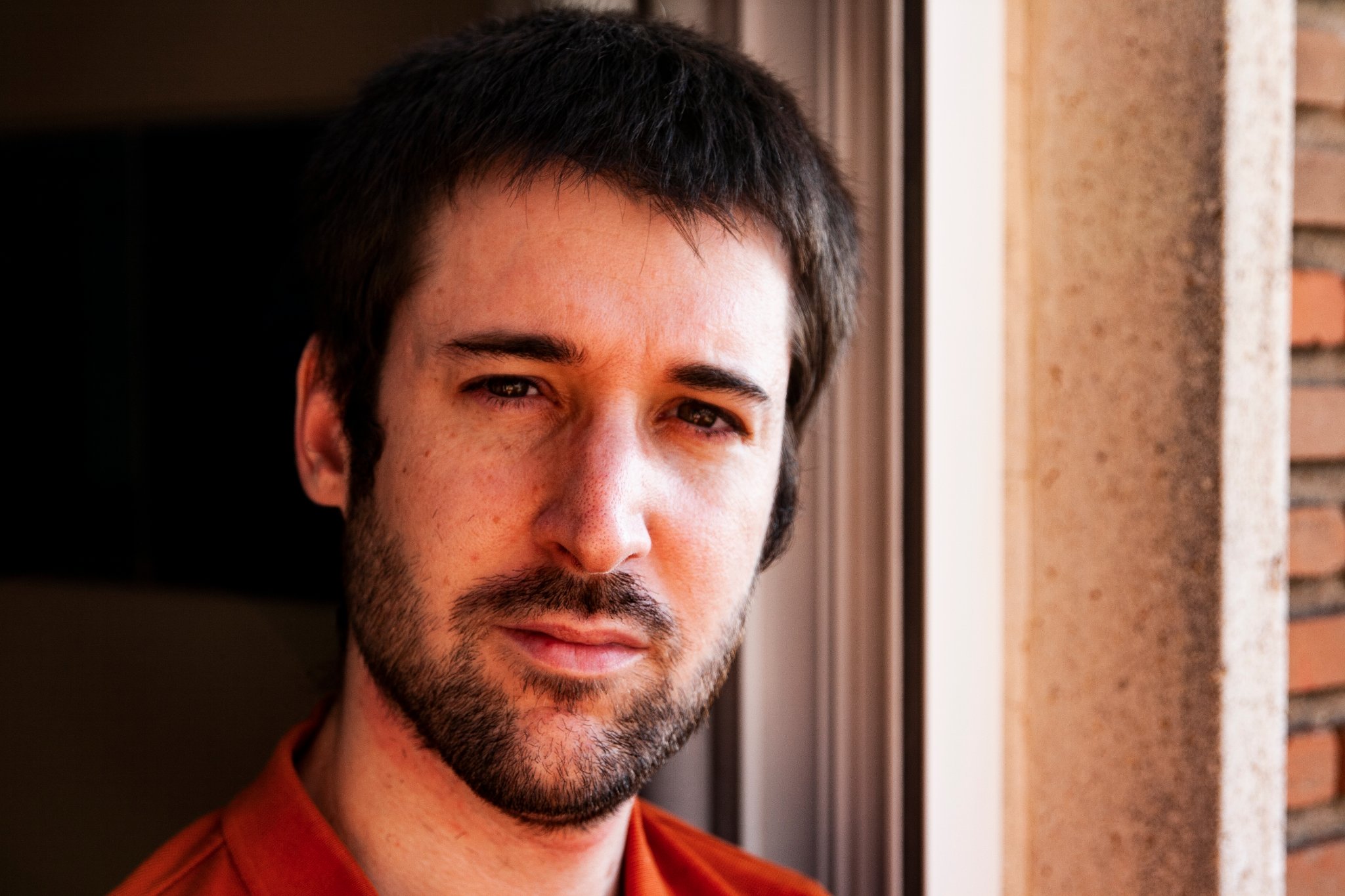
Joan Gómez Alemany
Una Tierra fragmentada
Duration: 12'
Instrumentation details:
1st electric guitar
2nd electric guitar
3rd electric guitar
4th electric guitar
Una Tierra fragmentada
Translation, reprints and more
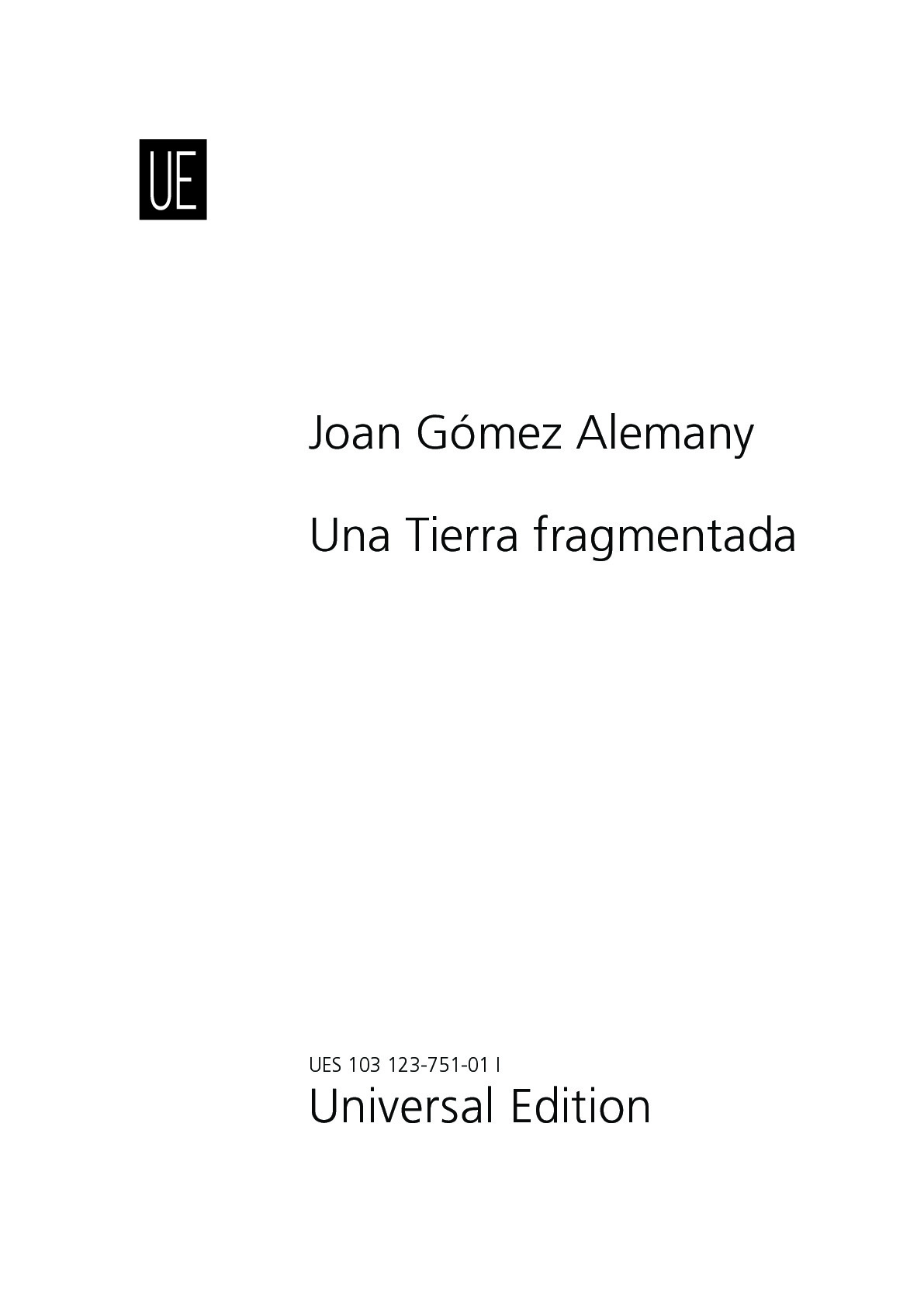
Joan Gómez Alemany
1. Elektro-Gitarre (Una Tierra fragmentada)Type: Stimme
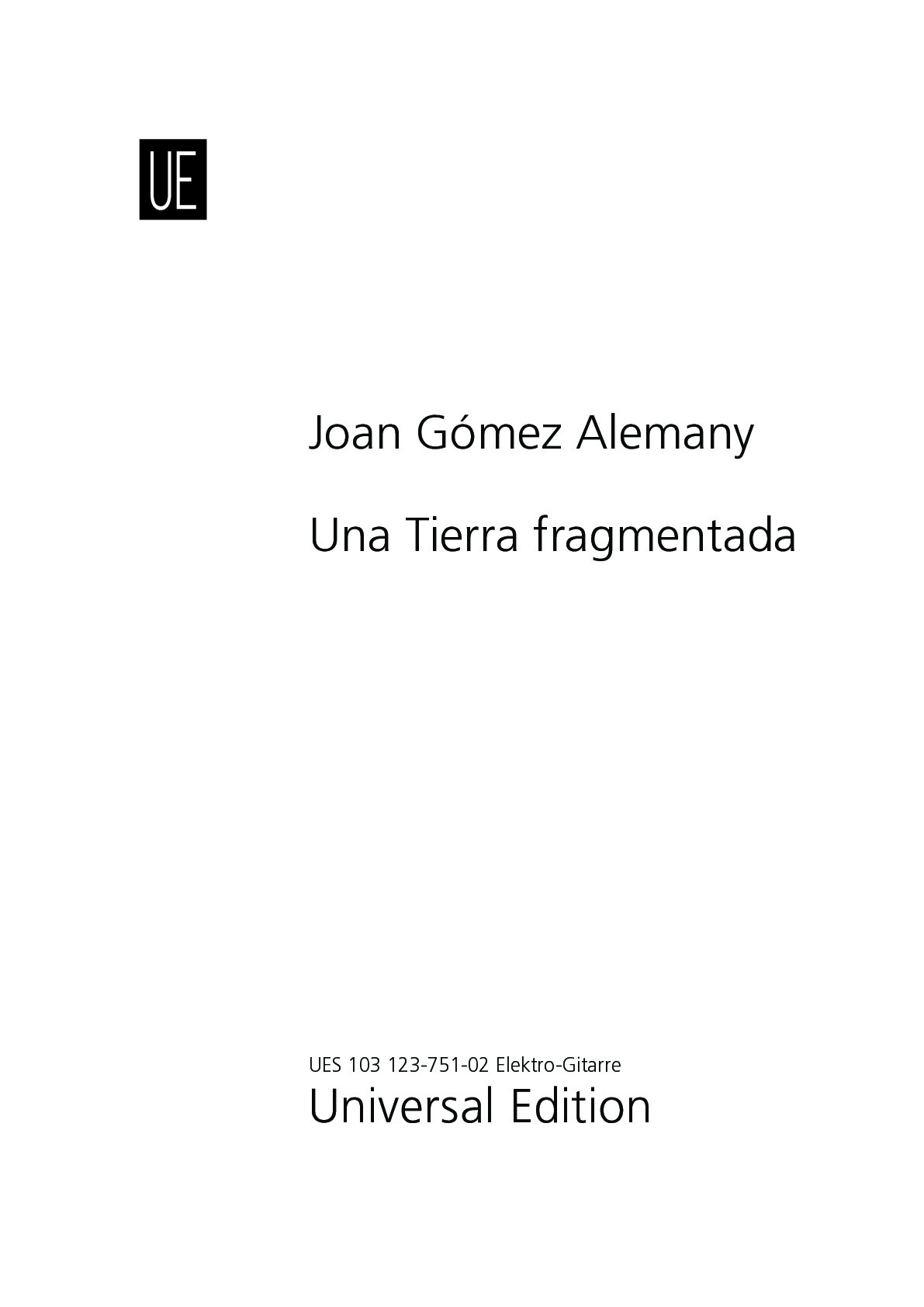
Joan Gómez Alemany
2. Elektro-Gitarre (Una Tierra fragmentada)Type: Stimme
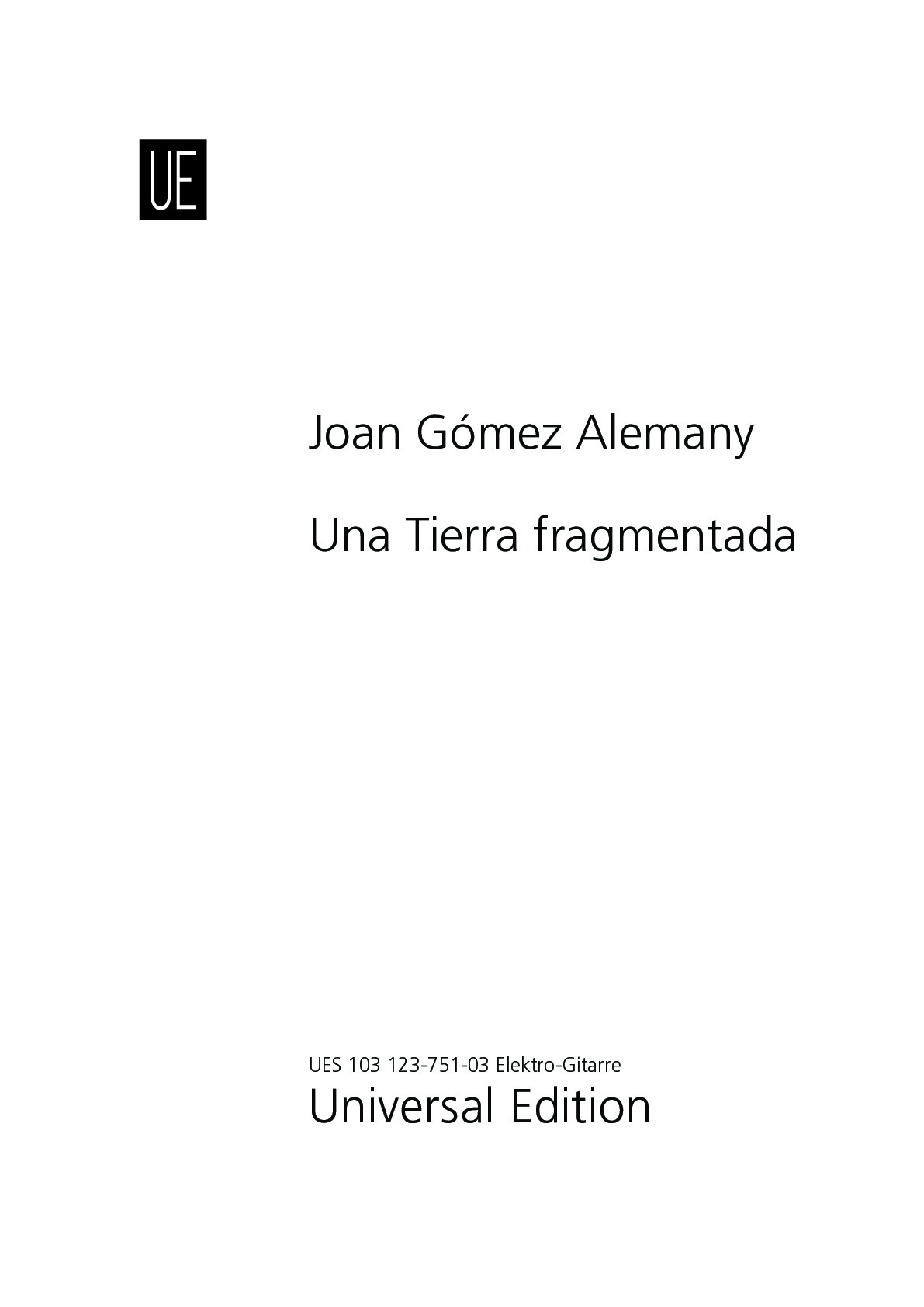
Joan Gómez Alemany
3. Elektro-Gitarre (Una Tierra fragmentada)Type: Stimme
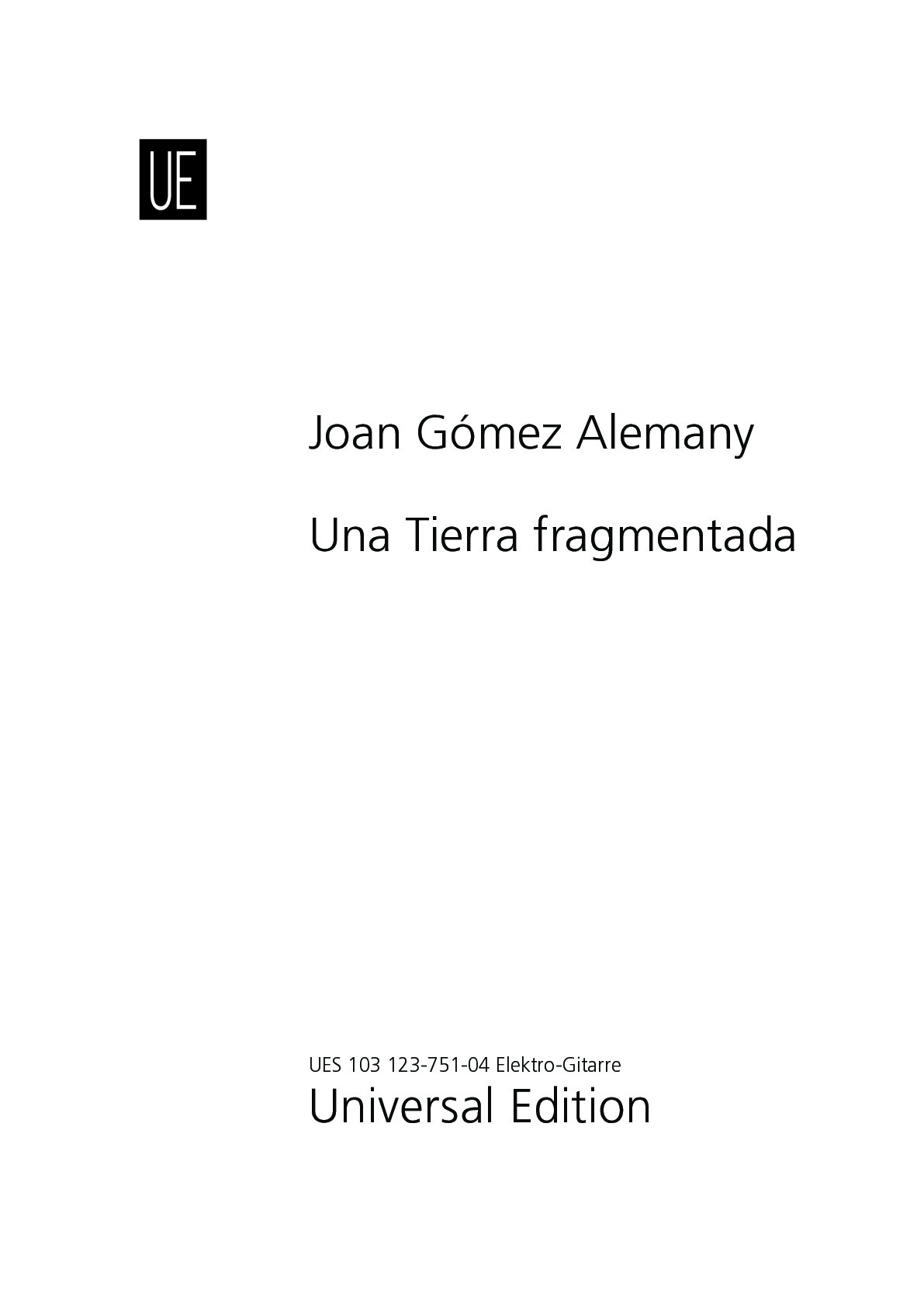
Joan Gómez Alemany
4. Elektro-Gitarre (Una Tierra fragmentada)Type: Stimme
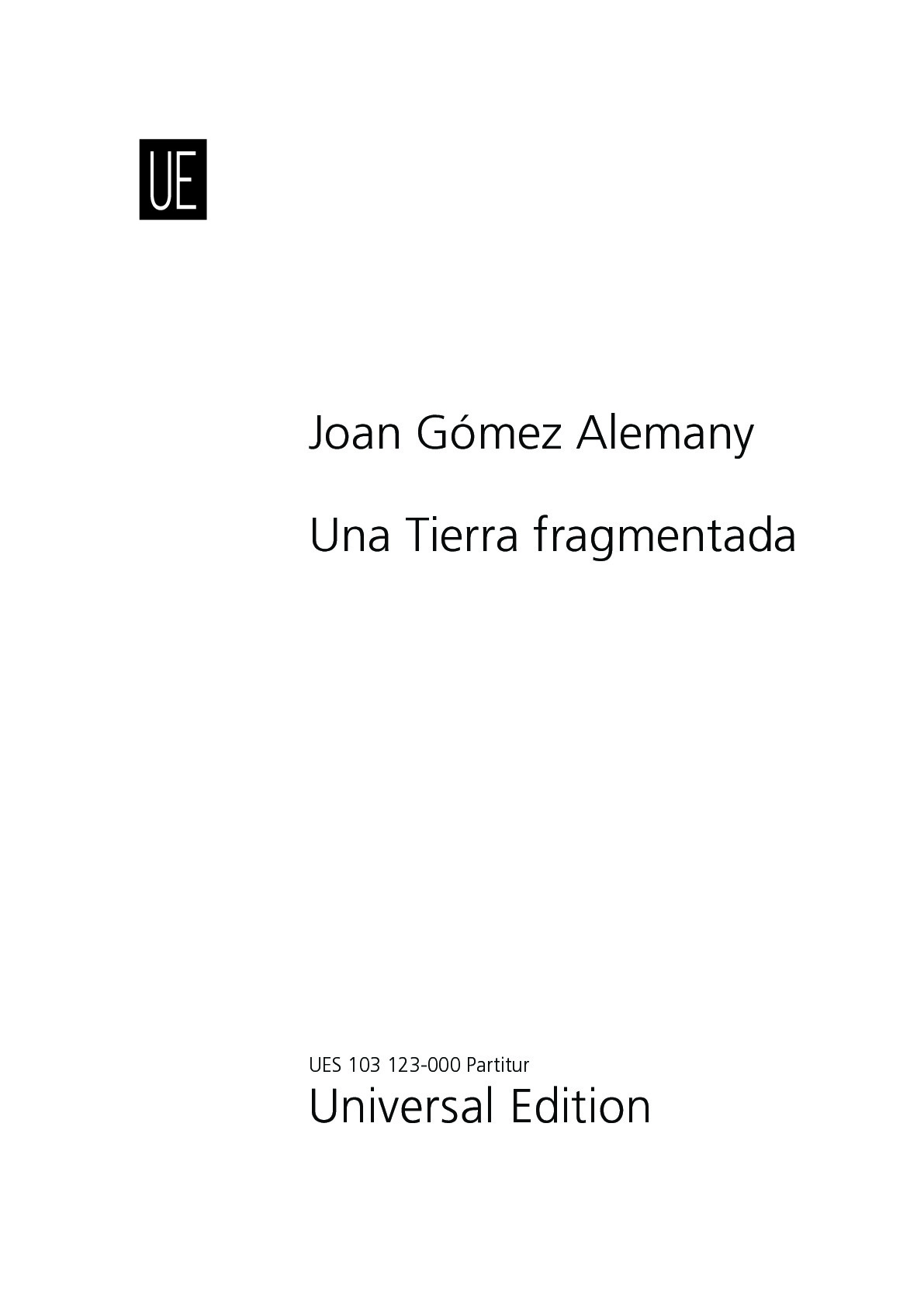
Sample pages
Work introduction
Una Tierra fragmentada was commissioned by Shifter Ensemble (Francesco Palmieri, guitar I / Pietro Paolo Dinapoli, guitar II / Ruben Mattia Santorsa, guitar III / Giuseppe Mennuti, guitar IV) and recorded the 30/07/2021 by Erwin Fonseca in the Colectivo La Pataconera, Berna.
WORK INTRODUCTION: The dialectic between traditional frequency, expressed in musical notes, and noise, both under the pressure of an integration process, is present in Una Tierra fragmentada (2020), a new string quartet that is more homophonic, since it is played by electric guitars. This creates certain links with the String Quartet No. 1 (átanoSonata), although the former was louder and more aggressive, compared to a guitar quartet that pays more attention to microtonality and the internal vibration of sound in each string, which allows us to perceive the influence of Giacinto Scelsi, José María Sánchez-Verdú or Pierluigi Billone in this score.
That dialogue between styles and methods of sound production covers Joan Gómez’s entire cata - logue, since Una Tierra fragmentada represents the evolution of Un fragmento de Tierra (2017), a guitar quartet with an abrasive presence, closer to (átanoSonata) in terms of primordial violence, due to its Land Art and flamenco influences. In Una Tierra fragmentada these presences are not so explicit, but filtered. The rhythmic audacity derived from flamenco in the first quartet gives, now, way to repetitions in ostinato that are present in the chords and the pulses, consolidating his catalogue, since its ritual character brings it closer, in the same way, to La religión del sonido.
Una Tierra fragmentada was recorded in studio by the Shifter Ensemble (Francesco Palmieri – guitar I, Pietro Paolo Dinapoli – guitar II, Ruben Mattia Santorsa – guitar III, Giuseppe Mennuti – guitar IV) on July 30th, 2021, since its premiere in Bern, scheduled for December 16th, 2020, was cancelled due to the COVID-19 pande - mic. This is a polymorphic quartet that, despite the fact that it echoes progressive rock and industrial music, shows a very analytically structured construction, since the whole twenty-four strings of the quartet produce another twenty-four microtones that create a microtonal row, doubling the semi - tones of the twelve-tone row. This procedure is even more harmonically rarefied as the guitars are tuned following Joan Gomez’s scordatura which forms a global sound that appears unstable and out of tune. To multiply the roughness and mechanised rhythmic sequences, the first guitar is plucked not only with a plectrum but also with a plastic cylinder that has a serrated thread, producing a more unconventional sound and creating more abrasive textures.
The guitar quartet also shares with (átanoSonata) the relationship in palindrome when it comes to order materials and give it a musical form (a procedure in which the Valencian composer shows great interest and that he uses in several of his scores, bringing new echoes of the Second Viennese School). In Una Tierra fragmentada the palindrome allows figurations arranged in permutations of verticality, as well as creating mirror inversions, such as those that occur between measures 73- 83 and 91-101. However, this thoughtful construction, in which the noise progressively becomes microtonal harmony, leads to an ending in which, as in his piece Lo duro y lo blando, “improvisation has, indirectly, a specific weight in the musical style, and also directly, since the last thirty seconds of the score are improvised (although musicians base their improvisation on the materials used in the previous bars).” During that final half minute, rapid changes among these materials take place, so that, more than a coda, we witness a collage or a patchwork in which the previous twelve minutes of this version resonate, until the first guitarist suddenly and unexpectedly brings the piece to an end.
Paco Yáñez
From the libretto of the CD 7 works for chamber music and ensemble edited by Liquen Records
